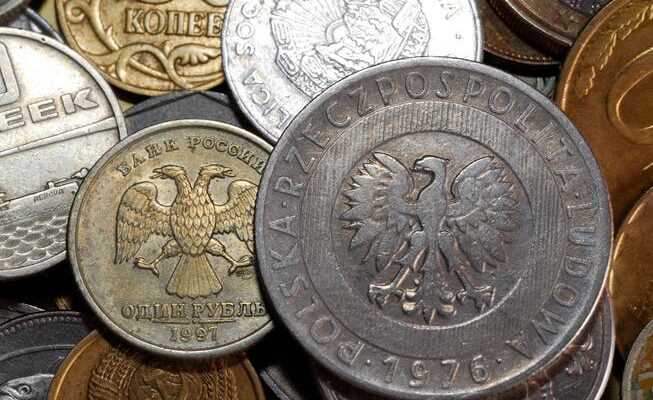The Kremlin is forcing buyers of Russian natural gas to buy rubles to pay for supplies in the future. This flushes foreign currency into the country and strengthens the currency – but puts the Europeans in a quandary.
Europeans are forced to buy large amounts of rubles on the Russian market every day.
For the time being, Russia will only accept payments in rubles for natural gas deliveries from buyers from states that imposed sanctions on Moscow in response to the Russian military intervention in Ukraine (“unfriendly states”). President has that Vladimir Putin announced at a cabinet meeting on Wednesday. He instructed the Russian central bank and the government to create the necessary conditions for processing these payments within a week. The rouble, which depreciated sharply against the euro and dollar after hostilities began in Ukraine on February 24, briefly strengthened on Wednesday. At the same time, natural gas prices rose sharply.
Freezing currency reserves hurts
Putin’s decision is unexpected and part of Russia’s at times creative attempts to use leverage where Moscow sees an advantage in response to harsh Western sanctions. Europeans are now forced to buy large amounts of rubles every day on the Russian market at the exchange rate set by the central bank. This flushes urgently needed foreign exchange to Russia and supports the exchange rate.
The procedure demanded by Putin for handling the ruble acquisition and payments probably won’t work without the central bank. However, this is also on the sanctions list of the European Union. The Kremlin appears to be giving Europeans the choice of whether or not to compromise on natural gas purchases. Putin emphasized several times that it was all about payment formalities. Russia remains a reliable supplier of the contractually agreed quantities of raw materials. The natural gas contracts that were concluded in foreign currencies are to be adjusted unilaterally.
Russia has to grapple with the fact that the sanctions also affect the currency reserves, which were originally created to better cope with Western sanctions. This and other financial sanctions, including the decoupling of a number of banks from the Swift international payments system and restrictions on dollar transactions, have led to a foreign exchange shortage in Russia and tight capital and foreign currency controls. Exporters already have to change 80 percent of payments in euros or dollars to rubles at the daily rate within three days of receiving them.
Too little foreign exchange
Anyone who has a foreign currency account in Russia will also feel the effects of the payment transaction controls: they will only be paid out a maximum of $10,000 in foreign currency, and only if the sum was in the account before the new regulations came into force on March 9. The rest is paid in rubles. In addition, it is currently only possible for selected groups of people to exchange rubles for foreign currency under very specific conditions. This hurts many Russians, who always only assess their own currency in relation to the dollar and euro and prefer to invest their savings in foreign currencies.
With their decision to freeze the Russian currency reserves invested in euros and dollars, the “collective West” actually caused a default on Russia and destroyed the reliability of the currencies. Russia’s confidence is gone; That’s why it has become pointless to be paid in foreign currency, said Putin. He indirectly held out the prospect of later extending the compulsion to pay in rubles to other goods as well.
